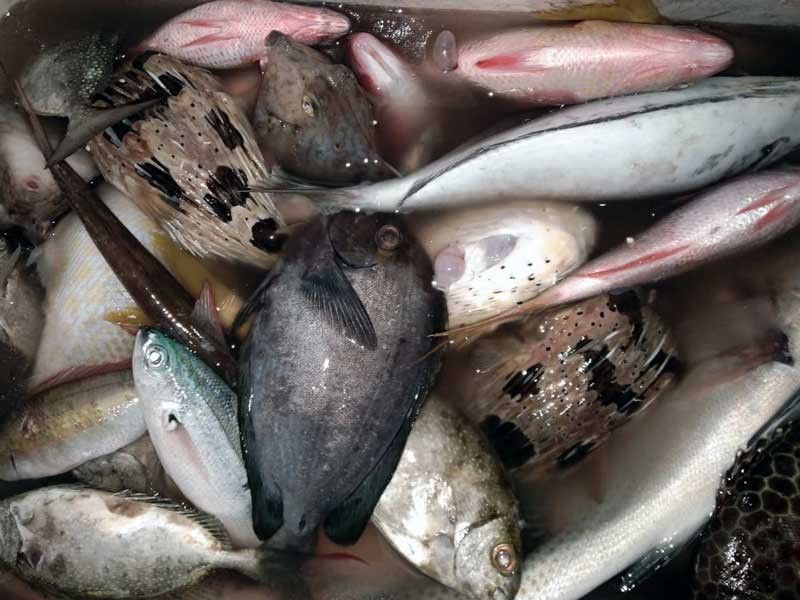How coastal towns can feed constituents by helping small-scale fishers

MANILA, Philippines — As lockdowns restrict the movement of fisherfolk and also lead to a drop in seafood sales, some local government units have extended help to fishing communities by buying their catch for food aid for their constituents.
The spread of the novel coronavirus in the country has made it tough for thousands whose lives depend on the sea due to the implementation of travel restrictions and curfew schedules. Although market prices for seafood have gone up, demand has gone down, which is bad news for fisherfolk.
To ensure that community fishers continue to earn, Mayor Roy Salinas of San Ricardo town in Southern Leyte and Mayor Arth Bryan Celeste of Alaminos City in Pangasinan bought the catch of fishers in their localities for inclusion in food packs distributed to families affected by community quarantines.
The Department of Agriculture earlier appealed to LGUs to prioritize buying produce from farmers and catch from fishermen.
Buying from local fishers and farmers a 'win-win'
“Fish is a staple food and source of nutrition for majority of Filipinos who are mostly living in coastal cities and municipalities. We also have millions of small, artisanal fisherfolk and fish workers who depend on fishing for their livelihood,” Gloria Estenzo Ramos, vice president of non-government organization Oceana, said in a statement Thursday.
"It will be a win-win solution for all if our local governments continue to prioritize and extend their support and resources to help our artisanal fishers and collaborate closely with national agencies and stakeholders," she added.
The organization also lauded Mayor Roland Boie Evardone of Arteche town in Eastern Samar, who has promised assistance to fishers who did not qualify as beneficiaries in the government’s Social Amelioration Program.
“We are happy that coastal mayors are stepping up to the challenge despite the fact that most of them belong to low-income class municipalities,” Andrea Loriaga, League of Municipalities of the Philippines executive director, also said.
Last month, the government’s inter-agency task force exempted healthy fishers and farmers from quarantine restrictions since they are essential in ensuring food security.
Actions vs illegal commercial fishing
Support for local fishers includes making sure their catch is protected through, for example, a recent apprehension of a commercial fishing boat operated illegally in the local waters of Bantayan, Cebu.
Oceana said the apprehension was due to the strict enforcement of fishery laws by Mayor Ithamar Espinosa of Sta. Fe and Mayor Arthur Despi of Bantayan in Cebu province and the assistance of the police and the Bureau of Fisheries and Aquatic Resources.
Espinosa said fishers in Bantayan reported an increase in fish catch to an average of 20 to 100 kilos each day from a maximum five kilos a day because of the the drive against illegal fishing.
Oceana earlier reported that commercial fishing operators have taken advantage of the government’s preoccupation with combating the spread of COVID-19 by entering areas meant for small-scale fishermen.
Under Republic Act 8550 or the Philippine Fisheries Code of 1998, municipal waters extend only up to 15 kilometers from the coastline and also include streams, lake, inland bodies of water, public forest, timber lands, forest reserves or fishery reserves.
These waters are supposed to be for municipal fishing, or “fishing within municipal waters using fishing vessels of three gross tons or less, or fishing not requiring the use of fishing vessels.”
- Latest
- Trending






























